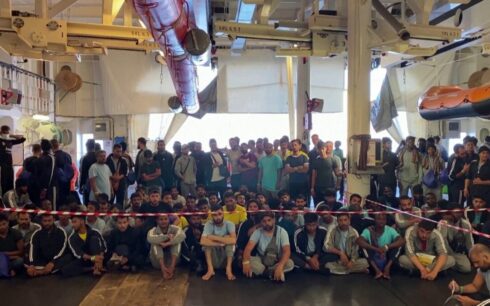NATO decided on Tuesday to extend Secretary General Jens Stoltenberg’s contract by an additional year, opting to retain an experienced leader amid ongoing conflicts rather than seeking a successor.
Stoltenberg, the former Prime Minister of Norway, has been serving as the leader of the transatlantic security alliance since 2014, and his term has already been extended three times in the past.
While the decision had been widely anticipated in recent weeks, ambassadors to NATO are expected to officially approve the extension during a meeting on Tuesday, as confirmed by diplomats speaking on condition of anonymity on Monday.
Stoltenberg has successfully navigated NATO through numerous crises since assuming his role in 2014. Most notably, he rallied NATO members in support of Ukraine while working to prevent the conflict from escalating into a confrontation between NATO and Russia.
Originally scheduled to step down in September after nine years as Secretary General of the military alliance, Stoltenberg’s term has now been prolonged for a fourth time. This decision gained momentum as the Vilnius summit approached, with allies concerned about displaying disunity while NATO continued responding to the Ukraine war.
Stoltenberg’s leadership journey has been noteworthy, transitioning from his early years as an anti-war activist who protested against the U.S. Embassy to becoming Norway’s prominent statesman and negotiator. Since October 2014, he has assumed the helm of the North Atlantic Treaty Organization.
During his tenure as Prime Minister, Stoltenberg supported NATO’s military operations in Afghanistan and Libya. Additionally, his government staunchly backed the Lockheed Martin Corp Joint Strike Fighter program, despite delays and cost overruns.
Internationally, Stoltenberg is well-known for his role in consoling his nation and advocating against hate-driven reactions following the tragic 2011 incident in which far-right gunman Anders Behring Breivik killed 77 people, predominantly teenagers, due to Labour’s support for immigration.





